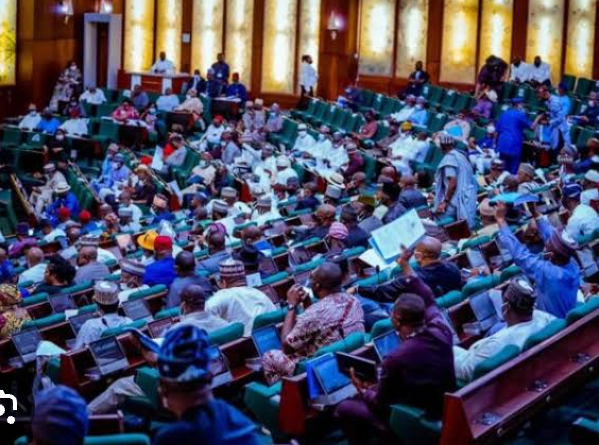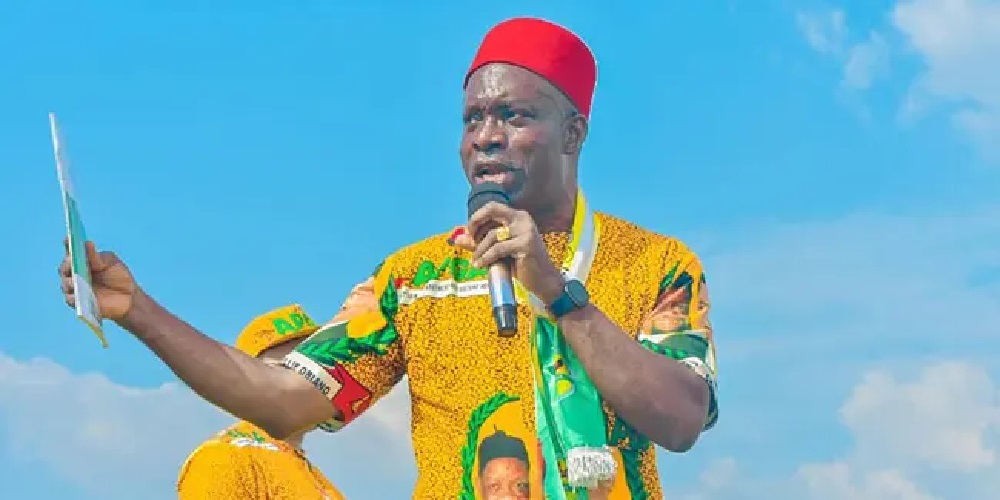News
Grid collapse: EFCC probes electricity contracts

The Chairman of the Economic and Financial Crimes Commission, Ola Olukoyede, on Tuesday, attributed the country’s epileptic power supply to corruption within the power sector.
He said the commission initiated a probe into the sector, adding that what it uncovered during its investigations would make Nigerians shed tears.
Speaking during the visit of the House Committee on Anti-Corruption and Financial Crimes to the commission’s headquarters in Abuja, Olukoyede lamented that contractors awarded projects to supply electrical equipment often opted for substandard materials.
He said this practice was a major cause of frequent equipment failures, outages, and grid collapses.
Olukoyede said, “As I am talking to you now, we are grappling with electricity. If you see some of the investigations we are carrying out within the power sector, you will shed tears.
“People who were awarded contracts to supply electricity equipment, instead of using what they call 9.0 guage, they will buy 5.0.
“So, every time you see the thing tripping off, gets burnt, and all of that, It’s part of our problems.”
He also stated that during its investigations, the commission discovered that in the last 20 years, capital project implementation and execution in the country were not up to 20 per cent.
He said the country could not achieve infrastructural or other forms of growth under such conditions.
“We discovered that in the last 15 to 20 years, we have not done up to 20 per cent of our capital project implementation and execution.
“And if we don’t do that, how do you want to have infrastructural development? How do you want to grow as a nation?
“So our mandate this year is to work with that directorate and with the National Assembly to see if we can meet up to 50 per cent of execution of our capital project for the year.
“If we do 50 per cent, we will be fine as a nation. The lack of implementation of this capital project, capital budget, is one of our major problems in Nigeria.
“If we can tackle that effectively, we will make progress as a nation. So we are doing everything to see how we can achieve that with your support.”
The anti-graft boss said the commission received over 17,000 petitions, adding that over 20,000 cases were currently under investigation.
He said, “We have several cases filed in court, apart from the conviction, running to thousands.
“In the last year, we have received over 17,000 petitions in EFCC. And right now, as I’m talking to you, we are investigating over 20,000 cases.
“Between last October and now, we have opened over 4,800 new cases. And what is our staff spread? We are less than 5,000 and now, with the additional responsibility of over 700 MDAs, 36 states, 774 local governments, and all of that.”
The Chairman of the committee, Obinna Onwusibe, called on the EFCC to collaborate with the judiciary to expedite the trials of suspects and reduce the number of inmates awaiting trial.
He said, “At this point, let me add that recently, on oversight visits to the maximum and minimum correctional centres in Kirikiri, Lagos State, numerous suspects have been awaiting trial for over one year, and yet we are all acquainted with the saying that justice delayed is justice denied.
“It is on this note that we call on the EFCC, the Attorney General of the Federation, and the judiciary to improve and ensure that the administration of criminal justice works in collaboration for an effective and efficient system that will bring about justice delivery to victims and society.”
He also urged the EFCC to ensure transparency and accountability in its operation.
“The negative maxim being peddled in certain quarters is that the agency is often being used to settle political scores, and this must be corrected by the EFCC,” he said.
News
Bill To Increase FCT High Court Judges Pass Second Reading

News
Reps want more FCT High Court Judges

The House of Representatives at the plenary on Thursday passed through second reading a Bill seeking to amend the High Court of the Federal Capital Territory, Abuja Act to provide for an increase in the number of Judges in the FCT High Courts.
The proposed legislation was sponsored by the Deputy Speaker, Rt. Hon. Benjamin Kalu, Hon. Babajimi Benson, Hon. Akin Rotimi, Jr and five others.
Leading the debate on its general principles, one of the co-sponsors Hon. Jonathan Gbefwi stated that the Bill seeks to address a fundamental aspect of the judiciary’s ability to deliver timely justice, which is an increase of the number of judges in the High Court of the FCT, Abuja, from the current maximum of seventy to a minimum of one hundred Judges.
He noted that the High Court of the Federal Capital Territory stands as a crucial pillar in Nigeria’s judicial framework, serving not only the residents of Abuja but also, in many respects, playing a pivotal role in cases of national importance.
He recalled that at the beginning of the 2022/2023 legal year, the FCT High Court carried forward 12,513 pending cases from the previous year, underscoring a substantial backlog and over the same period, the court assigned an additional 5,952 new cases, bringing the workload to a level that greatly strains available judicial resources.
He said that as it currently stands, the High Court of the FCT is limited in the number of judges it can engage, and this inadequacy significantly affects the rising volume and complexity of cases brought before it.
He expressed optimism that by increasing the number of Judges, this amendment is anticipated to reduce delays in case resolution, ensuring more efficient handling of cases, and consequently, enhancing public confidence in the judiciary.
Gbefwi said, “I stand before you today to lead the debate on the general principles of a Bill for an Act to Amend the High Court of the Federal Capital Territory, Abuja (Number of Judges) Act, Cap H6, Laws of the Federation of Nigeria, 2004 to Provide for Increase in the Number of Judges in the High Court of the Federal
Capital Territory, Abuja; and for Other Related Matters. The Bill which was read the first time on Tuesday, 23rd July, 2024, seeks to address a fundamental aspect of our judiciary’s ability to deliver timely justice, by seeking to increase the number of judges in the High Court of the Federal Capital Territory, Abuja.
The High Court of the Federal Capital Territory in Abuja stands as a crucial pillar in Nigeria’s judicial framework, serving not only the residents of Abuja but also, in many respects, playing a pivotal role in cases of national importance. However, as it currently stands, the High Court of the FCT is limited in the number of judges it can engage. This inadequacy significantly affects the rising volume and complexity of cases brought before it. The court’s current judge complement, though dedicated, is insufficient to keep up with these caseloads. The considerable backlog, reflects the limitations faced by the court in addressing the high volume of cases, which is only anticipated to increase with Abuja’s population growth and economic development.
“Given the rapid expansion of Abuja’s population, coupled with an
increasing caseload spanning various legal domains, the need for additional judges has become pressing. This amendment Bill is therefore introduced to address these systemic challenges by increasing the statutory number of judges for the High Court of the Federal Capital Territory. This Bill proposes an amendment to Section 1 of the extant Act to increase the number of Judges in the FCT High Court from the current maximum of seventy Judges (arising from the 2016 Amendment of the Act) to a minimum of one hundred Judges thus allowing for greater judicial capacity to address the current and future needs of the court. Mr. Speaker, Honorable Colleagues, this amendment is crucial; it is no doubt a necessary intervention to uphold the principles of timely justice, judicial efficiency, and the rule of law in Nigeria. I urge all members to lend their support to this Bill, as it represents a concrete step towards strengthening our judiciary and ensuring that justice remains accessible and expeditious for all Nigerians.”
The Bill was thereafter put to a voice vote by the Speaker, Rt Hon. Abbas Tajudeen, it was passed for second reading and referred to the Committee on FCT Judiciary and constitution review for further legislative action.
News
Insecurity! Anambra gov orders closure of schools for one week

… Starts Effect from Thursday
Anambra State Governor, Prof. Chukwuma Soludo has ordered the closure of schools in Nnewi for a week.
This is due to concerns over possible violence during the burial of Senator Ifeanyi Ubah.
Reports revealed that gunmen had previously threatened to disrupt the state if Ubah’s burial proceeded without addressing certain unresolved issues.
The tension escalated on Wednesday night when gunmen attacked Nnewi, killing several people and burning a vehicle.
The incident, which occurred around 7:30 p.m., sparked panic, with residents fleeing for safety.
With the burial scheduled for Friday in Umuanuka village, Otolo Nnewi, the state government issued a circular on Thursday via WhatsApp, instructing all principals to close schools in the Nnewi zone until Tuesday next week.
Parents of day students have also been advised to keep their children at home for safety.
“Good morning Parents, please the above information is from the Commissioner of Education, day students should not come to school till Tuesday next week.
“Good evening Noble Principals!!!
“I am directed to inform you to close all schools in Nnewi Zone on Thursday 21/11/2024 and Friday 22/11/2024.
“Please circulate this information on your school WhatsApp groups and inform parents of your students.
“Try your best to find proper channels of reaching these students so that they would not be found wandering on the streets with their school uniforms . Remain blessed and stay safe !!!”
-

 News20 hours ago
News20 hours agoJUST IN:Senate sacks Danladi Umar as chairman CCT
-

 News21 hours ago
News21 hours agoAbuja in panic mode as woman, her children burnt beyond recognition
-

 News20 hours ago
News20 hours agoTinubu fires VC, Registrar, dissolves Governing Council
-

 News24 hours ago
News24 hours agoWhy I turned down Range Rover gift from my admirer -Tiwa Savage
-

 News23 hours ago
News23 hours agoMassive empowerment: Senator Manu embarks on another ICT training in Taraba Central (Video)
-

 News22 hours ago
News22 hours ago“Na your papa Family or Inheritance? – Nigerians React As Ndume Begs Senate To Allow Ifeanyi Ubah’s Widow To Replace Him in senate
-

 News22 hours ago
News22 hours agoINEC presents certificates of return to Gov Aiyedatiwa, deputy
-

 News9 hours ago
News9 hours agoACF pushes for northern presidential candidate in 2027








